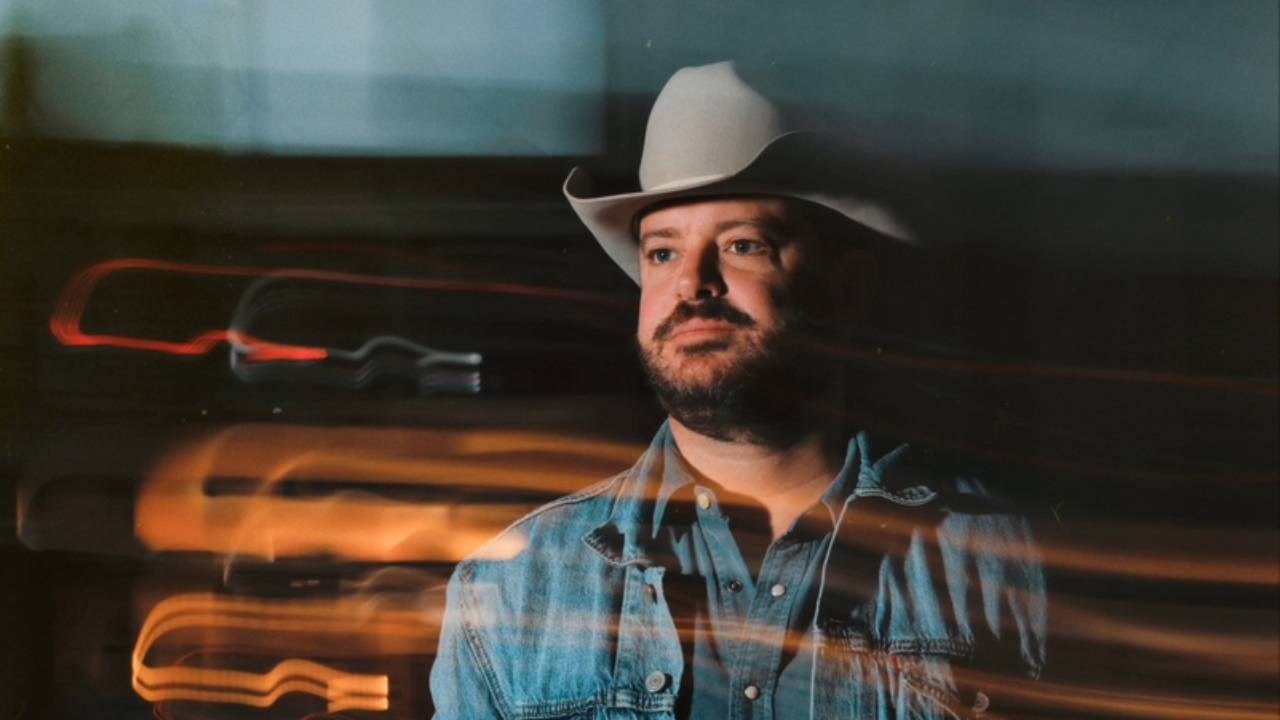NASHVILLE SKYLINE: Matthew, Mark, Luke And Johnny
(NASHVILLE SKYLINE is a column by CMT/CMT.com Editorial Director Chet Flippo.)
[article id="330"]Johnny Cash[/article] has always been the closest thing country music has had to a true holy man of the honky-tonks. He sinned -- boy, how he sinned -- and then he testified about it, as no one else could. And who could forget his very convincing portrayal of a psychopath in the 1961 movie thriller Door-to-Door Maniac (also known as Five Minutes to Live)? He went on to become a musical conscience of America, as well as a deeply spiritual writer and artist.
His spiritual bent continues in his new album with his explorations into the loftier aspects of the music. His new CD American IV: The Man Comes Around touches on some eternal truths and some bedrock verities of country music. Cash's brushes with death in his bouts with pneumonia in recent years have obviously sparked some spiritual introspection. But throughout his long and eventful career, Cash has kept one eye cast heavenward.
He wrote an overlooked book titled Man in White, which was a fictional account of the life of Paul the apostle. His 1969 album The Holy Land was mainly a musical tour of the Holy Land, with narratives by Cash. He also made the 1973 movie Gospel Road, a musical anthology of Jesus' life.
The first few times that I saw Johnny Cash perform on stage were not at a honky-tonk or even in a concert hall but at big revivals being held by evangelist Billy Graham. And Cash was as charismatic or even more so onstage than was the great preacher Graham. He got the faithful to their feet and shook them to their very foundation. Cash has always trod a very straight-and-narrow moral path in his recordings, too, from the time he left Memphis' Sun Records when Sun founder (and Elvis discoverer) Sam Phillips wouldn't let Cash cut a gospel album. He left for Nashville and Columbia Records. Which ultimately rewarded him for a long and fruitful partnership by dropping him from the label, as the first of the Nashville titans (Willie, Waylon, Dolly and others would follow) to be exorcised by the Nashville major record labels in its youth movement. Cash turned the other cheek. He went his own way and eventually signed with American Records, a label with a young and hip image and audience. Despite age and infirmities, Cash realigned himself for a new and younger audience. Or, more accurately, his music and his image drew that audience to him.
Now with his fourth American CD, The Man Comes Around, Cash continues with his evolving musical muse. I don't want to imply that the album has an air of finality about it -- but Cash seems to be preparing his farewells. Consider some of the songs: a gorgeously sad but expressive version of the tragic "Danny Boy," the spit-in-the face of death song "Sam Hall," the openly spiritual "Personal Jesus," Simon & Garfunkel's emotional "Bridge Over Troubled Water" and Hank Williams' great elegy of loneliness and despair, "I'm So Lonesome I Could Cry."
His voice is ravaged by time, but he has never sounded more like the eloquent voice of the ages. The last time I saw him perform in public, at the Americana Music Awards in Nashville in September, he was again the bigger-than-life Voice of America as he recited the words to his eloquent "Ragged Old Flag." But he also displayed his oft-disguised but very lively and sly sense of humor as he joked with his life partner June Carter Cash. He shows that sense of humor again here to great advantage with such songs as "Tear Stained Letter" and "Sam Hall."
The most riveting song on the album is the title track. Cash has said he worked longer and harder on writing "The Man Comes Around" than any other song he's ever done. And the work shows. The song came about from a dream he had, in which Queen Elizabeth II said to him in Buckingham Palace, "Johnny Cash! You're like a thorn tree in a whirlwind." He recognized the words as being Biblical and found them in the Book of Job. From there, he began adding references from the Book of Revelation until the song became a saga of apocalypse.
The song "We'll Meet Again" closes the album. Cash says he chose it because of its pivotal role in the movie Dr. Strangelove or: How I Learned to Stop Worrying and Love the Bomb. The song plays while Slim Pickens is riding an H-bomb from a bomber down to its target on the ground. That's Cash's sense of humor as well as his sense of irony at work. His lasting message seems to me to be: do the best you can while you're here, but -- don't take yourself too damned seriously.





